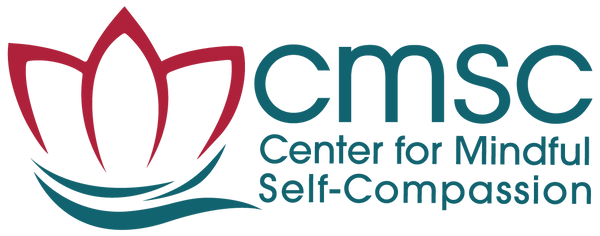5 Self-Kindness Tools to Carry with You
By the Center for Mindful Self-Compassion (CMSC)
At the Center for Mindful Self-Compassion (CMSC), we believe kindness grows stronger when we include ourselves in it. Self-compassion is a learnable skill that helps us meet life’s challenges with care rather than criticism. Whether you’re new to mindfulness or have practiced for years, these five tools can help you pause, soften, and reconnect to yourself and others.
1. Treat Yourself Like You Would Treat a Friend
When someone you love feels down, you naturally speak gently, offer comfort, and remind them of their strengths. But when you feel that way, your inner voice may sound harsher. Practicing self-kindness means offering yourself the same understanding and kind words you’d give that friend.
“You, yourself, as much as anybody in the entire universe, deserve your love and affection.” — Buddha
What the research shows:
Studies demonstrate that self-compassion is linked to greater resilience and emotional well-being, while self-criticism predicts anxiety and depression (Neff, 2003; Barnard & Curry, 2011).
2. Remember, You Are Not Alone
When things go wrong, it’s easy to feel like you’re the only one struggling. But imperfection is part of being human. Recognizing that everyone experiences hardship helps replace isolation with connection — a core element of self-compassion.
Example: Think of a time you made a mistake and thought, “No one else would have done that.” Then recall how often friends or coworkers have shared similar stories. You are part of a very human community.
What the research shows:
The common humanity component of self-compassion helps reduce shame and self-judgment by normalizing suffering as a shared experience (Neff, 2003).
3. Ask Yourself, “What Do I Need?”
When stress hits, we often power through or numb out. This simple question — What do I need right now? — brings awareness back to the body and opens the door to care.
Example: Maybe you need a five-minute walk, a glass of water, or to say “no” kindly. Listening inward helps you respond wisely instead of reacting automatically.
What the research shows:
Self-compassion practices activate the brain’s caregiving system rather than the threat system, reducing cortisol and promoting emotional balance (Longe et al., 2010).
4. Place Your Hand on Your Heart and Breathe
This gesture sends your body the message: You are safe. It’s a simple yet powerful way to calm the nervous system.
Example: Next time you feel overwhelmed, pause, take a few slow breaths, and gently rest your hand over your heart. Feel the warmth and steady rhythm beneath your palm.
What the research shows:
Self-soothing touch lowers heart rate and cortisol and fosters feelings of safety. In one study, placing a hand over the heart for about 20 seconds was enough to reduce blood pressure and activate the parasympathetic nervous system (UCL & University of Derby, 2020).
5. Use a Caring Phrase Like “I Belong Just as I Am”
Words carry power. When your inner critic speaks loudly, a kind phrase can help re-anchor you.
Try:
- “May I be kind to myself in this moment.”
- “I am enough, just as I am.”
- “I belong.”
What the research shows:
Repeating kind phrases — a form of loving-kindness meditation — increases positive emotions and social connectedness while decreasing self-criticism (Hutcherson, Seppala & Gross, 2008).
Download the Self-Compassion Pocket Card
Keep these reminders close — on your desk, in your bag, or wherever you need a moment of calm.
Download the 5 Self-Compassion Tools Pocket Card by right-clicking on the image below.
And if you’d like to nurture your practice with others, you can experience a free 45-minute Circles of Practice meditation offered online in a safe and welcoming zoom community each week by CMSC-trained teachers worldwide.
Because every act of kindness — especially toward ourselves — helps make the world a little gentler. 💗
About the Center for Mindful Self-Compassion
The Center for Mindful Self-Compassion (CMSC) is a nonprofit organization dedicated to alleviating suffering and strengthening well-being worldwide through the evidence-based practice of self-compassion. Co-founded by Dr. Kristin Neff and Dr. Christopher Germer, CMSC develops evidence-based programs, trains teachers in more than 90 countries, and offers free daily drop-in community meditations through its Circles of Practice program.
References & Research
-
Neff, K. D. (2003). Self-compassion: An alternative conceptualization of a healthy attitude toward oneself. Self and Identity, 2(2), 85–101. https://doi.org/10.1080/15298860309032
-
Barnard, L. K., & Curry, J. F. (2011). Self-compassion: Conceptualizations, correlates, & interventions. Review of General Psychology, 15(4), 289–303.https://doi.org/10.1037/a0025754
-
Longe, O., Maratos, F. A., Gilbert, P., Evans, G., Volker, F., Rockliff, H., & Rippon, G. (2010). Having a word with yourself: Neural correlates of self-criticism and self-reassurance. NeuroImage, 49(2), 1849–1856.https://doi.org/10.1016/j.neuroimage.2009.09.019
-
UCL & University of Derby (2020). Soothing Touch and the Physiology of Self-Compassion: A Systematic Review. https://pmc.ncbi.nlm.nih.gov/articles/PMC9216399/
- Hutcherson, C. A., Seppala, E. M., & Gross, J. J. (2008). Loving-kindness meditation increases social connectedness. Emotion, 8(5), 720–724. https://doi.org/10.1037/a0013237





